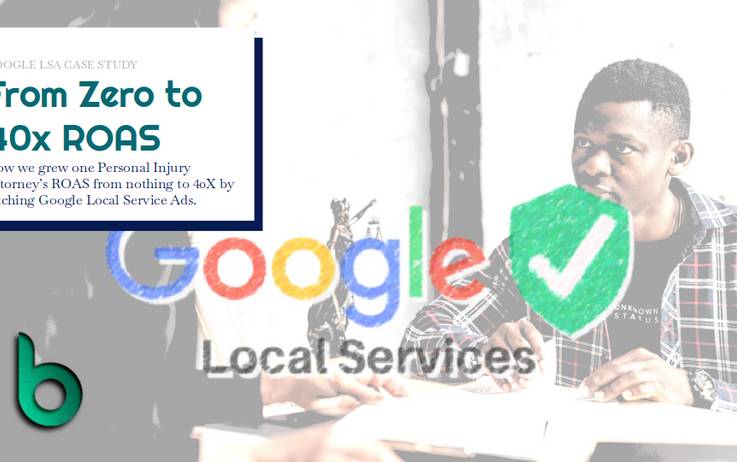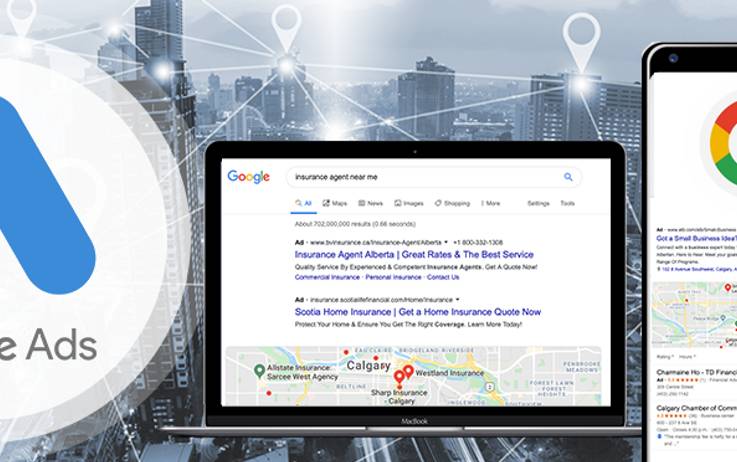How to Perform a Complete Local SEO Audit for Your Law Firm in 44 Minutes
If your law firm doesn’t show up on that first page anywhere, how do you grow the business? You start by conducting a local SEO audit of your website.
Share this story

If your law firm shows up on page 2 of Google, does it even exist?
Sadly, the answer is no—not if you're looking to grow your practice with online leads.
Local search is competitive, especially in the Legal Services industry. Most of us know that when we search for pizza or sushi nearby, for example, Google gives three local options and 10 organic results. A typical searcher selects one of the top three options, orders food, and calls it a day. It can work the same way for professional services, including for a lawyer.
But if your law firm doesn’t show up on that first page anywhere, how do you grow the business?
You start by conducting a local SEO audit of your website.
In this complete guide, Branding Company will show you how to conduct a local SEO audit of your own practice in just 12 steps, a process that takes only 44 minutes. Along with the steps, this tutorial also includes a list of the tools you’ll need and expert tips.
Ready to dive in?
Here’s how to conduct a local SEO audit in 12 steps:
1. Analyze Keywords for Your Local SEO Audit

What are your law firm's target keywords? The first step to improve your website's ranking on local searches should be to determine what you're currently ranking for and identify any opportunities you may be missing.
To start analyzing your potential keywords—the first step in any Local SEO Audit—identify a list of services, products, or a landing page to where you would like to drive traffic. Once you have this you'll be able to use tools like Keyword Finder to quickly put together a list of high-volume local target keywords.
With this list in hand, you can proceed with your local SEO audit and determine how well these keywords are optimized every step of the way.
Helpful Local SEO Tools:
2. Audit Competitor's Local SEO

Your law firm's local SEO audit should include a look at your competitor's SEO profiles early on. SEO is competitive—whether you do everything right or nothing right, your competition heavily influences where your practice ultimately ranks. As a law firm, you're always operating in a highly competitive online arena—whether your practice is located in New York City or North Dakota. Even if the other top law firms are not doing everything perfectly, you need to document what your up against as part of a Local SEO Audit.
Doing a competitor analysis early on will give you a frame of reference for everything you discover about your local SEO profile.
You don’t need to do a full-blown diagnostic on each competitor, but take a look at the following, and compare that data against your own:
- Google My Business (GMB) ranking for top keywords
- Organic rankings for top keywords
- Review quantity and quality
- Number of links
- Site Speed
- Social Stats
In most cases, you should be able to take a look through these items and develop a hypothesis on why your competitor is in the position they're in compared to your law firm.
Helpful Local SEO Tools:
3. Audit Google My Business Listing

Google My Business is one of the biggest drivers of local SEO success. If you want to appear in Google’s “snack pack,” your Google My Business listing must be robust, and well-optimized with your core target keywords.
During this stage of the local SEO audit, here are some things to look for:
- Do you have a GMB listing? If so, is it claimed and verified?
- Is all business information present and correct?
- Do you have multiple reviews and a high cumulative rating? Are you responding to reviews?
- Do you have appropriate business categories listed?
- Do you have images of the business?
- Have you created any GMB posts?
- Are you participating in the Questions & Answers section?
These are the core elements that make up a strong GMB listing.
Helpful Local SEO Tools:
- Manage access to your GMB listing
- Yoast Local SEO Plugin
4. Audit Reviews for Quality and Quantity

Reviews pack a ton of clout in both the local ranking and reputation-building arenas. Search engines regard online reviews—in terms of quality, quantity, and sources—as a powerful and authentic measure of your law practice's popularity and viability. Plus, potential clients trust reviews as an accurate gauge of your quality level, sometimes more than a direct referral.
Getting an abundance of positive, glowing, and wordy reviews across multiple review platforms like GMB, Facebook, Yelp, and industry-specific sites like Avvo, Martindale-Hubbell, and the Better Business Bureau helps you win on many levels.
Local SEO Guide notes that Google does pick up on the keywords people use in their reviews: “At a high level, having a keyword you are trying to rank for, and a mention of a city you are working to rank in, in reviews has a high correlation with high ranking Google My Business results.”
So in addition to review quality and diversity across the top platforms, you’ll want to examine the content of all available reviews to see if your client’s target keywords are present.
Helpful Local SEO Tools:
5. Audit Links for Quality and Quantity

Links remain the bread and butter of Google’s ranking algorithm.
As Branding Company CEO Dan Branda explains, “Google leans heavily on links. They're like the citation directories in your law school's library. The more citations you have, the more authority and prominence. When you invest time and resources to secure quality links to your content, you build your domain authority and will dominate your competitors on local rankings.”
A diverse array of quality links is crucial for any local business’s link portfolio. This means that as you conduct your local SEO audit you’ll need to evaluate your links for:
- Local content
- Industry or vertical topic clusters
- High domain authority
Link quality will win over quantity, and quality + quantity will help you dominate the search rankings in your market. On the flip side, if you see a high volume of spammy, off-topic links, you’ll want to make a note of it as a red flag that may be damaging your ability to rank well for your target keywords.
To expand on this, Google rewards relevancy: If you're auditing a local business website, it's better to set aside general SEO metrics and focus more on relevancy. For a law firm's local SEO, a backlink from within the Legal Services industry is good, but not relevant enough. A backlink from a website with a low domain authority, but that is from the same city and same industry, is much much better than a general backlink from an authoritative website such as Wikipedia. Having said that, don't just mark positive to all the relevant industry or same city backlinks. Check the linking page outbound links number, Moz Spam score, and content quality carefully. Google has caught on to spam link builders; you don't want to get backlinks from a page that Google considers to be garbage—a LinkFarm or Thin Content page.
Helpful Local SEO Tools:
6. Audit Schema-Markup for Local

Schema markup is code that goes on a website to help search engines return more informative results for users. Schema codifies your data, telling the search engines what it means, not just what it says.
According to Dan Branda, CEO of Branding Company, “Most law firms don't realize how important schema-markup is, and so many marketing companies just don't prioritize it. This is a huge mistake because schema-markup is a great opportunity to dominate the top of search results.”
This markup is a key way to tell search engines exactly what a given website is about, which will help them serve it up on SERPs for the correct search queries.
One way to check to ensure that your site is using schema markup is to enter their URL in Google’s Structured Data Testing Tool. You’ll be able to check to see if all the correct info about the law firm has been included.
To add schema-markup to your website, especially your landing pages:
- Take a quick look at the keywords and SERP results to understand the user intent when they click thru to your page. This will give you the best value.
- Identify the markups (reviews, events, articles, services, etc.) that will be a good fit for your website.
- Create a content map and tag the markup you will use for each page.
- While highlighting/adding information in the markup fields, add information that a visitor will find most helpful.
- Add Schema markup, either with Schema markup generator or (if a WordPress site), All In One Schema Rich Snippets."
According to schema.org, 10,000 to 50,000 domains (or ten percent of law firms) are using some sort of Attorney-related schema—which means there is plenty of room to implement it and get a head start on others.
Helpful Local SEO Tools:
7. Audit Local SEO Citations

How frequently is your law firm mentioned online? Auditing your citations will determine just how many online mentions exist of the name, address, and phone number for your practice.
It’s important to look into both your structured and unstructured citations, as they're quite a bit different.
For structured citations, you’ll audit your business listings across the web, looking at social platforms and directories like Yelp, Yellowpages, Facebook, Superpages, and MapQuest. You’ll also need to check to see if their correct business info is listed on the main data aggregators: Axiom, Neustar/Localeze, Factual, and Infogroup.
Next, you'll check for unstructured citations, which can be found on random websites, blogs, event listings, job posting sites, government records, or social media mentions. These are unstructured because they could be as simple as a company mention. Usually, these citations don’t include a business’s NAP data.
Helpful Local SEO Tools:
- Branding Company's bTrusted
- Branding Company's bFound
- Whitespark Local Citation Finder
- GeoRanker
8. Audit SEO on Main Pages

An audit of the main website pages is probably the most important piece of your entire local SEO audit. It doesn’t have to be time-consuming if you have the proper tools though. Screaming Frog is one of many excellent tools that’ll deliver a comprehensive look at your on-page SEO.
With your list of target keywords in hand, you’ll want to run through each page on your spreadsheet looking over the keywords on each page. Specifically, you’ll be looking at the:
- Page titles
- Title tags
- Sub-headings
- Word count
- Meta description
Even with just this information, you’ll be well-equipped to analyze how well your pages are optimized for local SEO. Plus, you’ll be able to identify improvements and content gaps that might be missing.
Once you’ve evaluated and recorded the weaknesses in your law firm's local SEO you can make use of a host of top-tier SEO plugins to help you do your work.
Helpful Local SEO Tools:
9. Audit Image SEO

There are two main components to image optimization for local SEO: keyword usage and how images affect page load speed.
You can use Screaming Frog to evaluate both.
Keyword Usage: Auditing image keyword optimization boils down to evaluating each image’s filename and alt text. Since Google can’t yet tell what visual content an image contains, site crawlers rely on things like the filename and alt text to determine what’s being displayed. These are places that should be optimized with relevant target keywords.
Page Load Speed: You can get some big improvements in page load speed when images are optimized to reduce their file size without significantly impacting their visual quality. Using Screaming Frog, you can take an inventory of all the images on your site and highlight the images that are slowing things down. (There are also image size optimization plugins that resize images automatically going forward.)
Helpful Local SEO Tools:
10. Check Website Speed

Having a site that loads rapidly is crucial in today’s online business environment. A vital step in your local SEO audit, site speed is a big reason potential clients stay on or leave a page.
Google’s latest research shows that the chance of a bounce increases 32% when the page load time goes from 1s to 3s. 1s to 5s increases the chance to 90%, and if your site takes up to 10s to load, the chance of a bounce increases to 123%. That’s incredible. For search engines, better results and performance is a sign of a healthy site that pleases customers and therefore should be rewarded with a higher ranking.
Google PageSpeed Insights Tool performs a near-instant audit of a given URL for both mobile and desktop searches. This will give you a quick way to tell if improvements are needed, and a list of actions to take to improve your law firm's website speed. Your law firm can even earn a perfect 100% on Google PageSpeed by focusing on just 4 improvements.
Helpful Local SEO Tools:
11. Audit Site Engagement

What visitors do when they discover your law firm online affects your rankings. In fact, David Mihm of Tidings argues, “Engagement is simply a much more accurate signal of the quality of local businesses than the traditional ranking factors of links, directory citations, and even reviews.”
In other words, if people objectively enjoy your site by engaging with the articles and videos, or sharing it on social media, tells Google that your website provides a great user experience and valuable information.
Metrics like organic search click-through rate (CTR), dwell time, bounce rate, and conversion rate are all ranking factors. You can simply use Google Analytics (which integrates with Branding Company's Online Marketing Dashboard) to examine your practice's engagement metrics and compare them to industry benchmarks.
Helpful Local SEO Tools:
12. Audit Social Engagement

The truth is that we’re not sure to what extent social signals are baked into Google’s ranking algorithm. However, there’s no doubt that a strong social media presence can significantly boost local SEO efforts.
According to Ron Dod of Visiture, the bigger and more engaged your audience is, the more you will be able to boost rankings. Dod says, “The bigger your brand is and the more consumers trust you, the more likely you are to receive a larger share of clicks in Google. Social media can be a great and efficient way to help you build your brand and get in front of people who wouldn’t have otherwise found you.”
Cornelia Cozmiuc of Cognitive SEO shares thoughts on a recent study on whether social signals influence SEO, observing, “It’s probably also worth mentioning another recent adage, coming from the creator of the XKCD web comic, which states that 'correlation does not imply causation, but it does waggle its eyebrows suggestively and gesture furtively while mouthing look over there.’ Which is to say that just because we cannot definitely state that more shares on a social network will lead to a higher position in the rankings list, it doesn’t mean it can’t happen.”
Therefore, evaluating your social platforms is an essential part of your local SEO audit.
- Number of people that like your page on Facebook + Facebook shares
- Number of Twitter followers + tweets mentioning your law firm by name
- Number of LinkedIn company followers and LinkedIn Shares
Helpful Local SEO Tools:
Final Thoughts
Performing a comprehensive local SEO audit using the 12 steps we have outlined is going to dredge up issues, no matter how marketing-savvy you are. However, local SEO is still a mystery to many law firms, so understanding the value of SEO work is key to planning how to grow your practice with new clients online.
Finding and fixing any SEO optimization issues you discover along the way is also crucial, as is recording your progress to ensure you’re not missing any vital pieces of the local SEO puzzle. Using a checklist will help with your optimization progress and prevent any missed steps.
Because 84% of searchers skip paid ads and click on organic results, Search Engine Optimization is the base of every package we offer at Branding Company.
We simply do not see a reliable, long-term digital marketing strategy that works without SEO. Your business needs to be on Page 1 of Google because 4 out of 5 consumers start the buying process online and 90% never see page 2. If you're not on page 1, you're losing customers to your competition.
To get started with Branding Company's SEO services, signup for a free needs assessment or simply request a 15-minute introductory meeting to discuss your company's online marketing needs.

News & Promotions
The Latest

Filed under:
Google Ads: The Fastest Way to Grow
Most local pros lose money on Google Ads: not because it’s broken, but because they are. Here's how to stop burning cash and start booking clients fast.
Tue Jul 29 2025

Filed under:
From 0 to 40x ROAS with LocalAds
If you're not seeing leads from Google LSAs, Branding Company’s programmatic advertising will help you immediately put your marketing budget to work reaching the potential customers you want to influence.
Mon Oct 31 2022

Filed under:
How Your Website Can Score a Perfect 100% on Google PageSpeed Insights
The faster your website loads, the longer visitors stay connected and the lower your bounce rate. If your bounce rate is too high, Google assumes that your site doesn't answer a visitor's questions and you will be demoted in the search rankings.
Fri Jul 02 2021

Filed under:
Local Advertising (Omni-Channel)
One Audience. One Objective. One Budget for Advertising on digital ads for display, video, OTT, social, and search. Programmatic, Google, Facebook, and mobile location advertising made simple!
Sat Jun 26 2021

Filed under:
Pay Per Click Google Ads
Branding Company is pleased to offer our clients fully managed Google Ads campaigns at three different tiers, built to attract clients for your legal services, in your target area to maximize your budget. And for most packages, we do not even take a management fee on your advertising budget.
Sat Jun 26 2021

Filed under:
SEO for Law Firms: How To Grow Your Online Visibility
By doing smart SEO and making sure your expectations are realistic regarding the absolute amount of traffic and local leads you can aim for, you can ensure that your law practice will do better than your competitors and snag clients without expensive paid ads.
Sat Jun 26 2021
